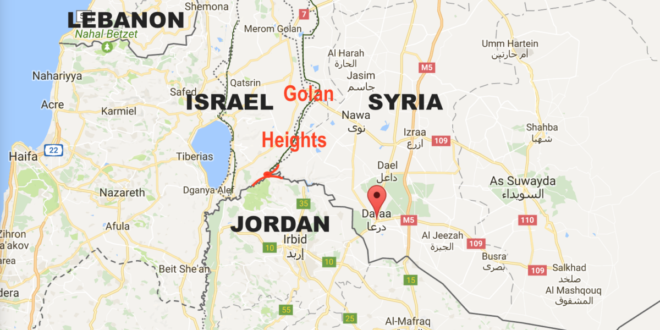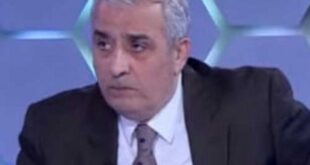By Shehab Al Makahleh
At a time of growing retrenchment and economic instability, Jordan is leading a strong move nowadays, albeit belatedly, to give momentum to Arab causes as the region is heading towards very critical incidents in 2018 if friction continues at same pace of past few years with a change in game rules as some countries will start flocking together to better serve their long term goals rather than short term ones as was the case with some Arab countries in the aftermath of the “Arab Spring”.
Thus, this applies to Jordan which would be opening its borders with Syria before end of winter of 2018 as war in Syria is almost over and Jordan is no more interested in resuming ties with Syria as a country where both the Hashemite Kingdom of Jordan and Syria have more than 400 kilometers of joint borders with two official crossing points.
The proposal of Atef Tarawneh, the Jordanian Parliament speaker, to visit Syria and to hold talks with his counterparts in the Syrian parliament as well as other Syrian officials represent a major shift in the Jordanian policy by opening politically and economically to Syria under the Jordanian people’s pressure who have been calling on the government to restore its ties with Syria.
Jordanian Parliament speaker’s cordial welcome at his office few days ago the Syrian Chargé D’affaires in Amman Ayman Alloush is a message to Syria and to its allies that Jordan, for the sake of Jerusalem, is ready to reconsider this visit to better serve mutual relations, and reopening of the crossing points as well as advocating Jerusalem issue, especially when the speaker of the Jordanian parliament congratulated the Syrian Chargé D’affaires on the restoration of many sites in south Syria from terrorists’ hands, which the Syrian side realised as courting, depicting this as “a new page and that restoration of ties is “inevitable”.
Following American President Donald Trump’s recognition of Jerusalem as capital of Israel and the move of his country’s embassy from Tel Aviv to Jerusalem, Jordan felt disappointed by the American administration which has unpredictable decisions and actions. After 2011 and the heavy pressure on the Jordanian armed and security forces, Amman had found itself isolated and working alone to save Jerusalem from any political rift before reaching a final settlement of the two state solution as the unilateral move by the Americans simply means there is no Palestinians state in the lands which were occupied in 1967. Thus, the sole alternative would be Jordan as an alternative homeland for those who sought refuge in 1967 and the southern desert of Palestine and Sinai as the other alternative for those who are currently in the Palestinians territory.
With the new speech of Trump outlining the American Security Strategy, the American president who has demanded the countries the USA defends to pay for “American defense” resonates that many countries will start rethinking of new alliances and looking for strategic and military support from other European and Asian counties such as France, the UK, China and Russia. In the middle of all these developments in the Middle East, it is obvious how the Trump administration envisions its role in the broader Mideast region whether it would have a deal with Russia, or a deal with Iran, or with Israel or with any party at the expense of Arab interests. This will be clear next year when the Syrians will vote for their coming president and when the Iraqis vote for the representatives at the parliament.
Many areas have been covered in Trump’s Security Strategy Speech. However, the Middle East has been given just few short sentences in the speech just by talking about Iranian expansionist policy, jihadi ideologies, regional conflicts and instability factors in the Middle East. This has prompted Jordan to take action to safeguard its interests and its custodianship of Christian and Muslim holy sites in Jerusalem.
Since there was a backdoor channel between Jordan and Syria regarding security issues on the Jordanian borders with Syria, it has been in the interest of both countries to address reopening the borders as this would save the Jordanian economy with millions of dollars in addition to the future Jordanian role to reconstruct both Iraq and Syria.
Thus, after all these developments which had taken the whole region in a shock in just few days, Jordan had to take action by spearheading a campaign with Arabs, Muslims and Christians everywhere from the Vatican to Paris, from Beijing to Moscow to orchestrate efforts to keep Jerusalem out of the present solution and keep it until the final settlement of the Palestinian Israeli talks.
Playing cleverly and diplomatically, King Abdullah II has proved to his people he is with them in their stand against the American decision vis-à-vis Jerusalem and that he is open to further political options. Jordan at present would be the most important country if it takes any action that would dismay the Americans and Israelis regarding a political rapprochement with Syria as a country not as a regime. What Jordan is seeking is to achieve a serious sustainable peace, not peace as an unattainable utopian ideal. Jordan has been striving very hard by giving the floor for other regional players to act as Amman was undergoing too many serious political and economic challenges. Right now, the U-turn Jordan has started since Trump’s decision is to find means to secure the Arab identity of Jerusalem, not only the Muslim one but also the Christian, by ceasing hostilities, a coda to the serious work of projecting force, but rather as the achievement of the political, economic, social, environmental, cultural and other factors that lead to instability and conflict.
At present, King Abdullah II is building on the national ethos of the Jordanian people to develop their country to be a very good model for others to follow in terms of pluralism, democracy, cohesion, modernity and moderation. The kingdom has been built by Jordanians of all backgrounds and mosaic. This fabric enhanced the unity of the people and their power where people respect each other regardless of their religion or roots. Thus, the Jerusalem cause has unified all Jordanians from all political spectrums and the coming few weeks will reveal the role Jordan would be playing to restore the status of Jerusalem back to pre-Trump period.
 Geostrategic Media Political Commentary, Analysis, Security, Defense
Geostrategic Media Political Commentary, Analysis, Security, Defense





